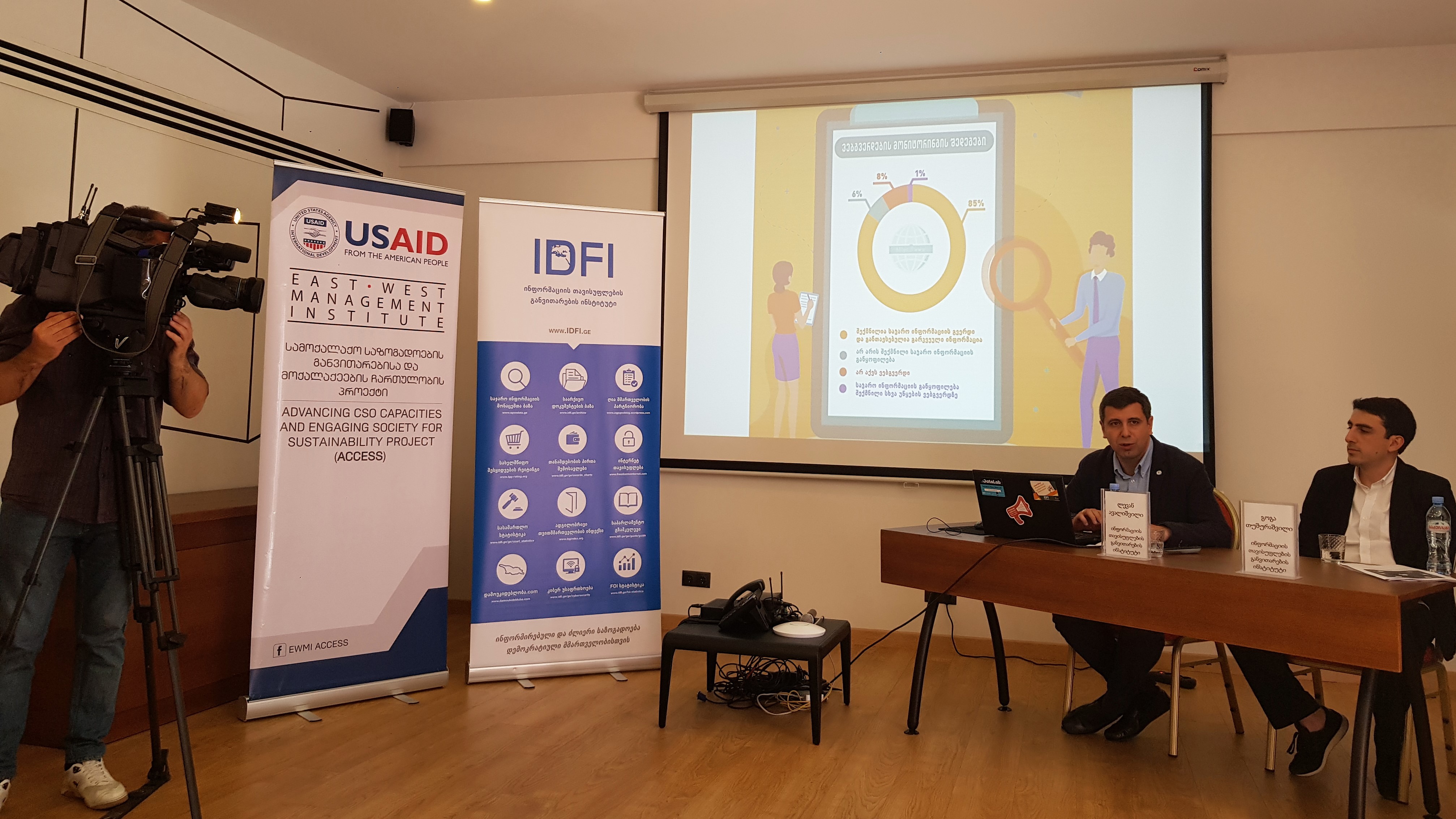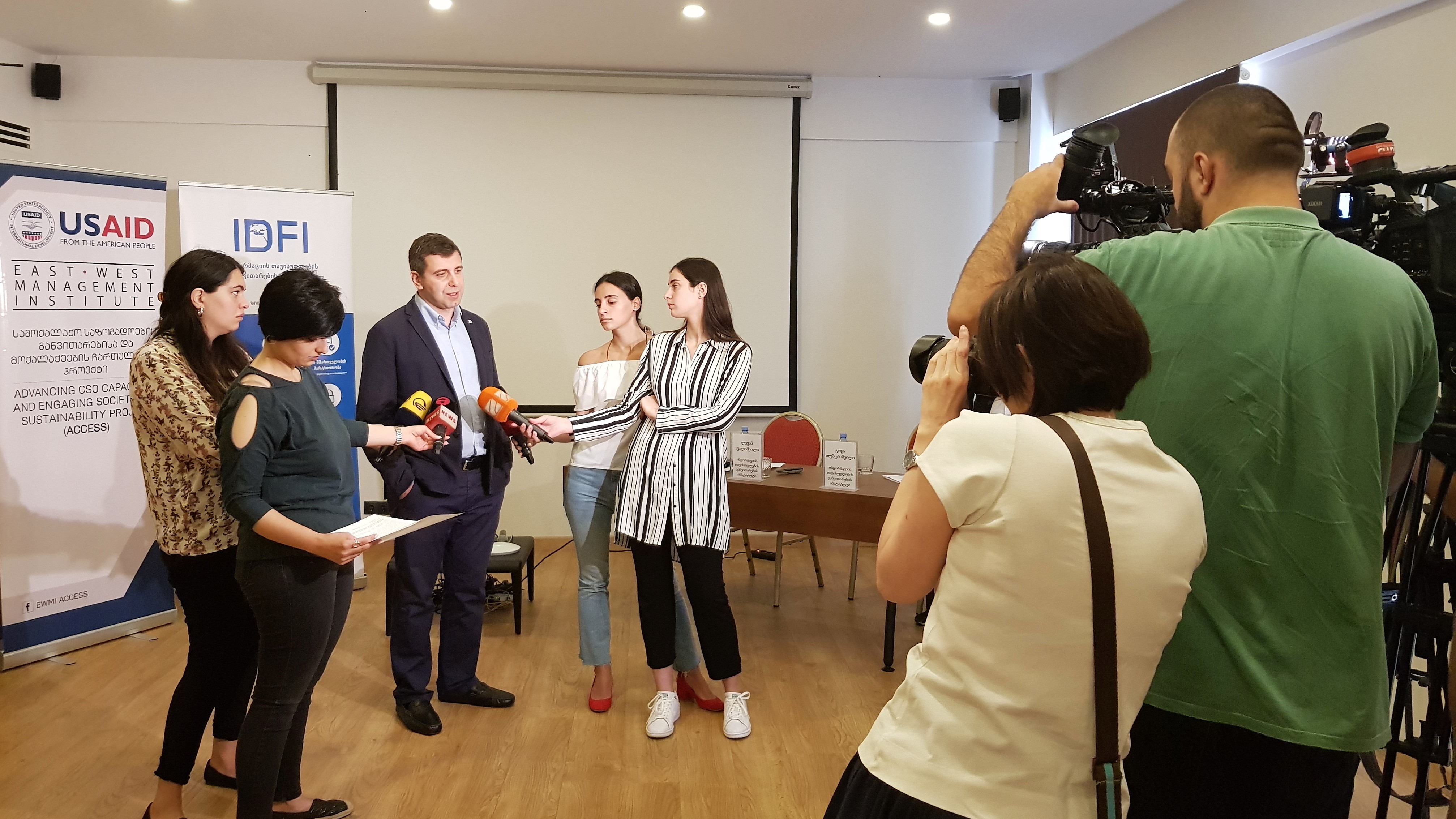


 The Institute for Development of Freedom of Information (IDFI) has published the results of its monitoring of proactive online disclosure of information by Georgian public institutions in 2019.
The Institute for Development of Freedom of Information (IDFI) has published the results of its monitoring of proactive online disclosure of information by Georgian public institutions in 2019.
The monitoring covered official websites of 100 public institutions, including the Parliament of Georgia, Administration of the Government of Georgia, 11 Ministries / State Minister's Offices and 86 subordinated LEPLs and sub-agencies.
As of May 2019, no public institution had fully complied with the requirement to proactively publish information (100%) on its website. 15 institutions do not have a website at all or do not have a separate public information section on their website.
In 2019, the average rate of proactive discloser of public information is 53%, which is 18% lower than in 2014. The most problematic issue for public institutions was publishing information related to state budget usage/expenses, including: received (22.2%) and issued (23%) grants, funding received from budgetary funds – 24.4%, property disposal – 27.4%, advertising expenses – 34.1%, etc.
Public institutions showed the best results in proactively publishing legal acts and general information, including: contact details (91,3%), charter(89,3%), normative acts (85,7%), organizational structure (82,1%).
The highest (98%) assessment among central public institutions was received by the Ministry of Education, Science, Culture and Sports, followed by (96%) the Ministry of Internal Affairs. The lowest indicator among central public institutions (39%) was  received by the Administration of the Government of Georgia. The Administration has not published any information on procurement and finances since 2014.
received by the Administration of the Government of Georgia. The Administration has not published any information on procurement and finances since 2014.
Low results were also shown by the Ministry of Environment Protection and Agriculture (42%) and the Ministry of Foreign Affairs (47%). Approximately 40% of public institutions under the ministries have less than 30% of public information proactively published on their website.
The project is supported by the East-West Management Institute’s (EWMI) Advancing CSO Capacities and Engaging Society for Sustainability (ACCESS) project, funded by United States Agency for International Development (USAID).